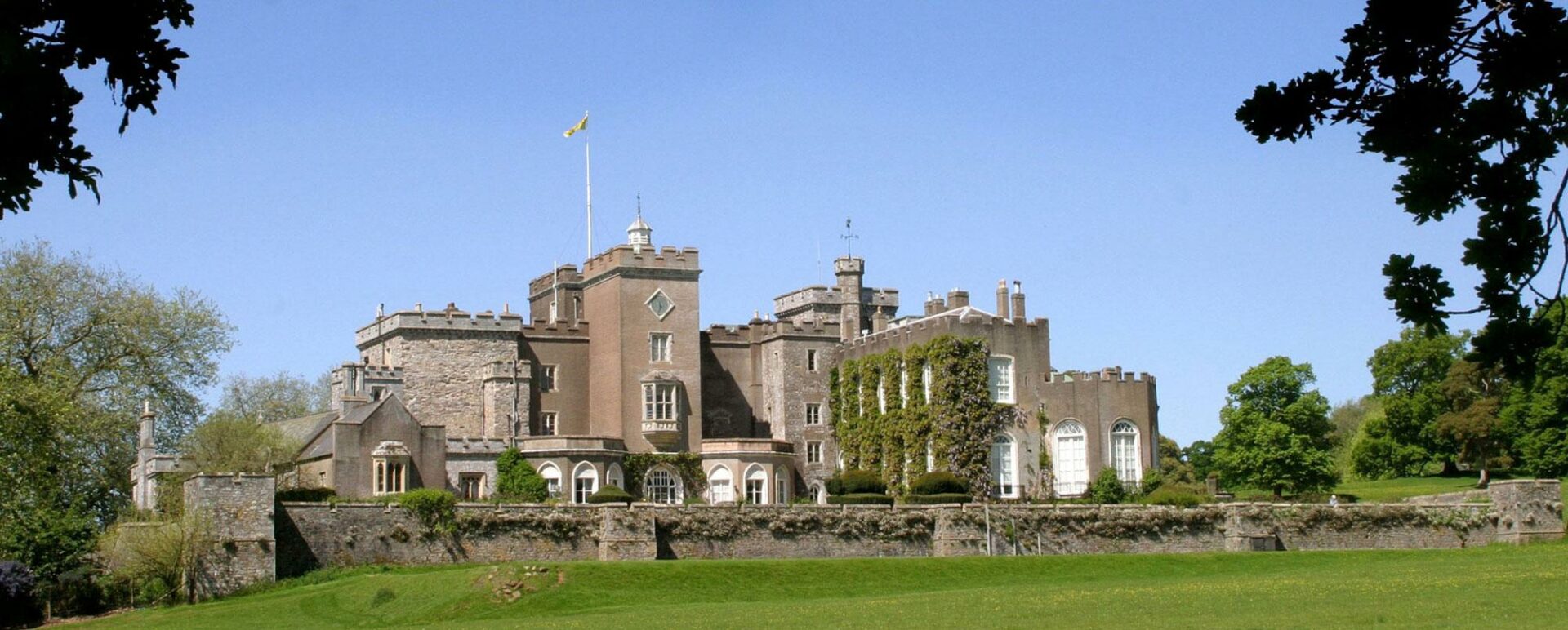No visit to Devon is complete without paying some respect to, or at least going to have a good nosey at, the Lords and Ladies who have made their homes around here over the years. Surprising as it may seem today, Devon has had its fair share of big players in Europe’s ‘game of thrones’ over the years. We’ve got the castles to prove it.
Powderham Castle
Just down the road from Welcome Family Holiday Park is the ancestral seat of the De Courtenay family, and if you don’t know who they are then read on!
The line is viewed as being founded by Athon De Courtenay, the son of the man who originally defended and fortified the town of Courtenay in France towards the end of the first millennium CE. This family rose to prominence after the loss of the English throne to the Frenchman, William the Conqueror.
Many of his followers and commanders were gifted lands and titles as the French took full control of the country, and the Courtenay’s received what was from then on the seat of the Earls of Devon.
This bloodline produced, amongst others, an Emperor of Constantinople. This was Pierre De Courtenay, formerly Pierre De France, seventh son of Louis the VI of France. He married into the Courtenay family and took their name.
This marriage fused the Courtenay line with the famous Capetian dynasty, which produced so many of France’s kings. These people have had an Archbishop of Canterbury, a Royal Physician, and positions of note throughout the land over the years.
Nowadays there is a clutch of grandchildren to the old Earl, all of whom we assume are well provided for, even if these old royal families have fallen on relatively hard times. The Castle is open all year round, but only via guided tours. The grounds are worth seeing, with views all the way down to the River Exe.
Berry Pomeroy Castle
Berry Pomeroy castle, located near to Totnes, tells the story of another family that did not fair so well in the great game that the royal families of Europe have been playing for the last thousand or more years. The castle is a beautiful ruin.
Said to be the abode of ghosts, and one of the most haunted places in Devon, this castle is a reminder that even the wealthiest families can fall on hard times and go back to being normal people, who have no idea of their heritage beyond the last two generations or so.
Shortly after commencing work on the castle in around 1500, the family fell on hard times and sold the land to Edward Seymour, the 1st Duke of Somerset and Lord Protector of the young King Edward VI. However, Edward Seymour did not stay long in favour with the crown and was executed for treason in 1552. All his lands passed to the Crown.
His son, another Seymour regained the castle some years later, and the Seymour’s retained and expanded the buildings until they fell from grace after supporting the unsuccessful Royalist cause against Oliver Cromwell.
These are just two of the many fine castles and houses to be found in Devon. Stay tuned for more places to visit in our next update!
